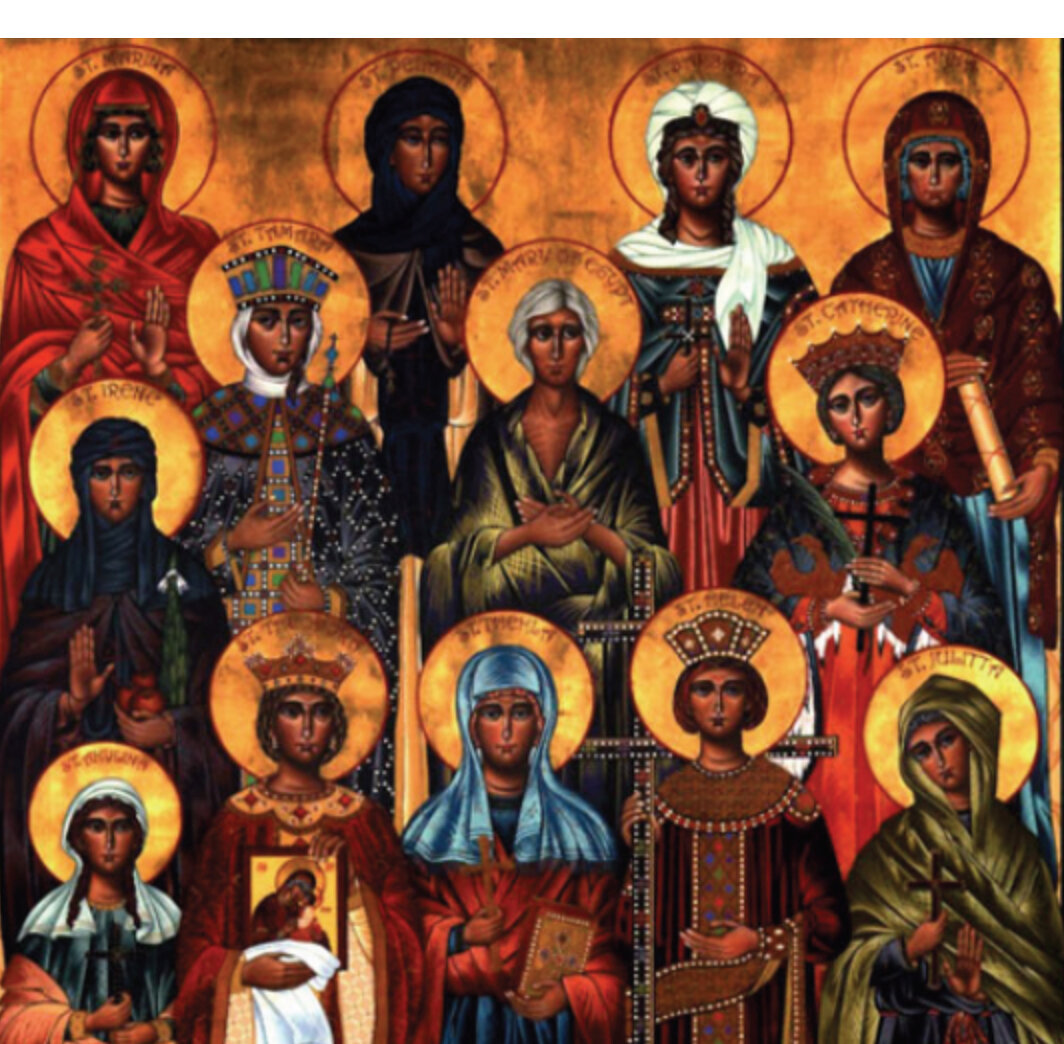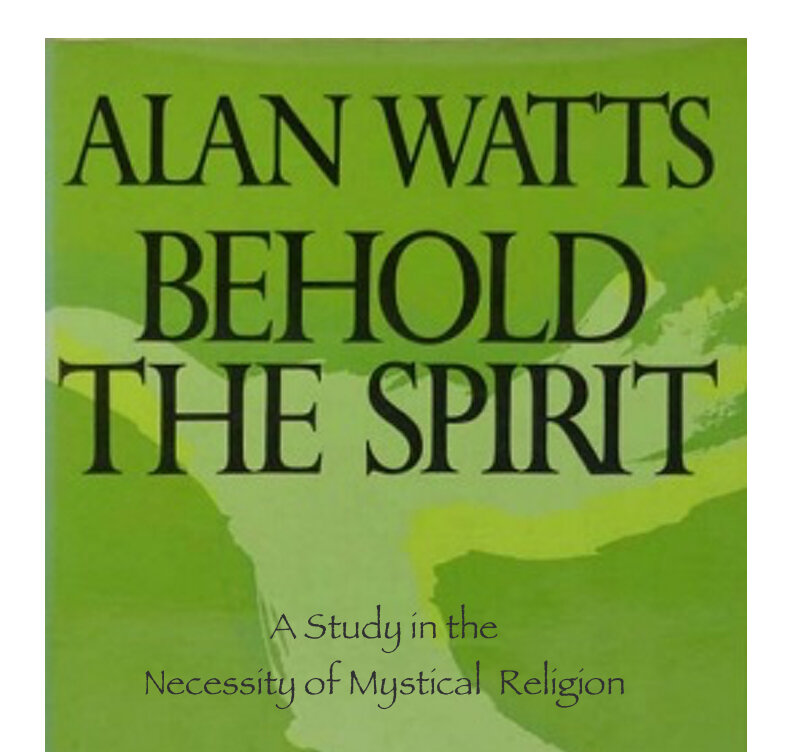
"Identification With Things" (excerpt) The New Earth by Eckhart Tolle
The people in the advertising industry know very well that in order to sell things that people don't really need, they must convince them that those things will add something to how they see themselves or are seen by others; in other words, add something to their sense of self. They do this, for example, by telling you that you will stand out from the crowd by using this product and so by implication be more fully yourself. Or they may create an association in your mind between the product and a famous person, or a youthful, attractive, or happy-looking person.

"Belief in Inerrancy May Be Hazardous to Faith (PART 2) — Problems with Biblical Inerrancy" (from: Religious Tolerance.org)
Intentional translation errors: No Bible translation into English is free of bias. Essentially all versions of the Bible are the product of translators who come from a similar theological background. Being human, they sometimes produce versions of the Bible that tend to match their own belief systems. For example:
The original Hebrew and Greek texts contain a number of different concepts for the place where people will live after death: Sheol, Gehenna, and Hades. Some translations transliterate these place names, and so they appear in the English text in their original forms as "Sheol," "Gehenna," and "Hades." The reader is thus aware that they refer to different beliefs about life after death. But…
SPECIAL THANKS TO AND PLEASE SUPPORT RELIGIOUS TOLERANCE.ORG

"Belief in Inerrancy May Be Hazardous to Faith (PART 1) — Problems with Biblical Inerrancy" (from: Religious Tolerance.org)
Why belief in biblical inerrancy can be hazardous to one's faith:
When a person considers the Bible to be totally inerrant in its teaching of theology, morals, beliefs, geology, geography, history, etc., it may leave the person's faith vulnerable. Even one proven error could shatter their entire belief system and make the Bible seem useless.
Mark Mattison wrote:
"If in actual fact Caesar Augustus did not really order a census while Quirinius was governor of Syria [or] if it turns out there really was only one Gadarene demonaic rather than two, then the entire Bible becomes worthless and every tenet of Christian faith falls flat. If one single discrepancy emerges, it's all over. This makes Christian faith an easy target for skeptics, and drives believers to unimaginable lengths to 'defend' the Bible." 1
SPECIAL THANKS TO AND PLEASE SUPPORT RELIGIOUS TOLERANCE.ORG

7 Reasons Why Evangelicals Should Read Thomas Merton by Michael Wright
I first learned about Thomas Merton when I skipped chapel at my Christian high school. I started to meet weekly with a kindhearted Bible teacher who looked through my cynicism and saw a desire for a deeper spiritual life. I’m grateful for those conversations—especially the day he told me about a book written by Merton called No Man Is An Island. As I started reading it, I was excited to find a monastic writer with piercing insights into my own inner life and a Christian mystical tradition markedly different from the subculture around me. It was providential timing: I was slipping into depression that would last for years, and Merton quickly became a friend and guide through a spiritual wilderness. So today, in honor of his birthday and his lasting impact on the wayfarers and mystics among us, here are seven reasons why evangelicals should read Thomas Merton:

“WOMAN as Erotic-Spiritual Power” (excerpt) Fire in the Belly: On Being a Man by Sam Keen
The third aspect of WOMAN is as an irresistible erotic-spiritual force. She is the magnet, and men the iron filings that lie within her field.
It is difficult to give this aspect of WOMAN a familiar name because Western mythology, philosophy, and psychology have never acknowledged its reality. Once, men and women assumed that the goddess controlled all things that flow and ebb—the waxing and waning moon, the rise and fall of tide and phallus. But ever since God became Father, and men have considered themselves the lords over nature (and women), we have defined man as active and WOMAN as reactive. Consequently, we have never developed a language that does justice to WOMAN'S erotic-spiritual power.

"Male and Female Differences and Strengths - The Yin Yang Perspective" by Felice Dunas
The most fundamental essential philosophies behind Oriental history, culture, religion, government and business is Yin Yang theory. This is one of the oldest cosmologies in all of human thinking. People have been using this understanding of life for over 5000 years. We don’t know its true historical timeline as archeological evidence can document only around 5000 years at present. Yin Yang theory works with the premise that all of life stems from a point of perfect balance. On either side of that balance you have the left and the right, the wet and the dry, the night and the day, the female and the male, the negative and the positive, multi-faceted focused, single goal focused, etc.
BE A SUPPORTER OF FELICE DUNAS’ WORK

“Losing Jesus’ Cultural & Theological Baggage” by Adyashanti
It wouldn’t matter if he grew up a Jew, or a Christian, or a Buddhist, or a Hindu, because he’s speaking about the structure of religion itself—its hierarchy, its tendency to become corrupted by human beings’ desires for power, for influence, for money. ...

“Mad Dash!” by William Martin
A new drive-through food establishment has opened in Chico. It’s called… wait for it… Mad Dash! The sign out front proudly proclaims, “Two slices of pizza and a drink in 90 seconds!” I’m thinking of opening a competing place called Instant Gratification! People will pull up to a pump, insert their credit card, stick a hose in their mouth and pump a liter of high fructose corn syrup directly into their gut. No muss, no fuss, no nutrients to get in the way and keep us from getting about the business of… whatever it is that is so urgent.

"Understanding Gender" (excerpt) The Seekers — Elizabeth Lesser
I often turn to Jungian psychology to better understand issues of gender. Jung separated personalities not so much into male and female, but into unique blends of masculine and feminine qualities, which he believed were found in all human psyches in varying degrees of potency. The masculine principle, or archetype, as Jung called it, celebrates rational thinking, heroic power, goal-oriented achievement, and independence. It is transcendent, visionary, mindful. The feminine principle loves to feel; it compels us to nurture; it links sexuality with relationship; and it reveres life and death as natural cycles of nature. It is embodied, intuitive, heartful.
BE A SUPPORTER OF MS. LESSER’S WORK

"There are Teachers Everywhere" (excerpt) The Exquisite Risk by Mark Nepo
The Upaguru—Hindu for the teacher that is next to you at any moment.
From the rotting tree felled by lightning to the water re-smoothing after the whale dives down, everything is of equal sanctity and grace. From the darkness we can't see through to the [ tenderness of a grandfather afraid to speak, everything and everyone is a teacher. Each flower, each bird, each suffering, great and small, each eroded stone and crack in that stone, each question rising from each crack—every aspect of life holds some insight that can help us live. We can learn and deepen from anything anywhere.

"NATIONAL AND RACIAL PAIN-BODIES" (excerpt) The New Earth by Eckhart Tolle
Certain countries in which many acts of collective violence were suffered or perpetrated have a heavier collective pain-body than others. This is why older nations tend to have stronger pain-bodies. It is also why younger countries, such as Canada or Australia, and those that have remained more sheltered from the surrounding madness, such as Switzerland, tend to have lighter collective pain-bodies. Of course, in those countries, people still have their personal pain-body to deal with. If you are sensitive enough, you can feel a heaviness in the energy field of certain countries as soon as you step off the plane. In other countries, one can sense an energy field of latent violence just underneath the surface of everyday life. In some nations, for example, in the Middle East, the collective pain-body is so acute that a significant part of the population finds itself forced to act it out in an endless and insane cycle of perpetration and retribution through which the pain-body renews itself continuously.

"Awakening from the Egoic Trance" (excerpt) — FALLING INTO GRACE by Adyashanti
If we really want to address the whole issue of suffering, as well as our desire and yearning for freedom, love, and connection, then we need to learn how to look clearly at our own minds…

"Christian Mysticism as a Threat to Papal Traditions" by Hayley E. Pangle
From the Gnostics of the second century to the Waldesians of the thirteenth century, popular religion as practiced outside the structures of the Roman Church challenged the religious authority of the papacy and greatly influenced the decisions it made as it refined doctrines, decrees, and practices that it deemed acceptable to the church. Christian mysticism, although having its roots in the earliest days of Christianity, expanded and intensified in the eleventh through fourteenth centuries in Europe. Several aspects of the mystic Christianity in the Middle Ages challenged the traditions of the church, including the mystics’ theological interpretation of scripture, their graphic visions, and their threat to established gender roles.

"Private "I," Private Property" (excerpt) THE TAO OF ABUNDANCE by Laurence Boldt
The primary or original consciousness, the Tao—the innate intelligence of the universe—is there all the while, whether we are aware of it or not. The man who has amnesia has not become someone else—he has simply forgot-1 ten who he is. In the Western world, which is today (in a cultural sense) ] most of the world, we have a collective amnesia regarding the unnameable Tao—we have lost touch with a consciousness that is prior to the ego. It is j not only that we have failed to open the Wisdom Eye; we have forgotten that it even exists. As a result, the field of consciousness available to us is limited to that defined by the ego.

"Why Doesn’t Asia Have Religion?" by Thomas David DuBois
Having spent the past 10 years writing and teaching on Asian religions, I now have something to confess:
Asia does not have religion.
“But what,” you may ask, “about that college class I took on ‘world religions?’ We learned about Hinduism, Confucianism, Daoism (Taoism) and Shinto. Half the class was about Asia.”
Between you and me, I hate that class. I hated it as a student, because I thought it didn’t make sense. I hate it even more as a professor, because I know it doesn’t make sense. Here’s why.
BE A SUPPORER OF THE HUFFINGTON POST AND THE WORK OF THOMAS DAVID DUBOIS

"Abiding in the Tao" (excerpt) THE TAO IS SILENT by Raymond M. Smullyan
In the Judeo-Christian religions, one hears much of “fear of God” and “love of God”—also “obedience to God”. In early Chinese Taoism, one speaks not so much in terms of “love of Tao”—and certainly not “fear of Tao”!—but rather of “being in harmony with the Tao”.

"Off-beat Zen" by Tim Lott
How I found my way out of depression, thanks to the writings of the English priest who brought Buddhism to the West.
Ever since I was a child, I have been acutely sensitive to the idea — in the way that other people seem to feel only after bereavement or some shocking unexpected event — that the human intellect is unable, finally, to make sense of the world: everything is contradiction and paradox, and no one really knows much for sure, however loudly they profess to the contrary.
DO DONATE TO THE GREAT WORK DONE AT AEON

“Becoming a Warrior of Love” by Amoda Maa
As old world structures crumble, the possibility of a new world dawns on us. A world in which authenticity, transparency, and respect are the ground from which we live. This new world starts within — it’s an inner revolution, a 360 degree turnaround of consciousness in which we meet ourselves, each other, and the life we live from an internal landscape that is free of ego’s grip.
But in order to be free of ego, we are required to face the fear that drives the panic of our minds and poisons the blood in our veins. And this is the task of a warrior — one who can stand as openness in the midst of darkness, one who can walk as presence in the midst of devastation. Is this too much to ask of ourselves, is this beyond our reach as ordinary human beings? No. It is nothing more and nothing less than the harnessing of our birthright of freedom and our true sovereignty of love.

"The Tao Does Not Command" by Raymond M. Smullyan (excerpt) THE TAO IS SILENT
The great Tao flows everywhere, to the left and to the right All things depend upon it to exist, and it does not abandon them. To its accomplishments it lays no claim. It loves and nourishes all things, but does not lord it over them.
(Laotse, tr. Alan Watts)
That is another thing so nice about the Tao; it is not bossy! It loves and nourishes all things but does not lord it over them. Thus the Tao is something purely helpful—never coersive!
In the Judeo-Christian notion of God, one thing which is so rigidly stressed is obedience to God! The great sins are “disobedience, rebellion against God, pride, self-will”, etc. The Christians are constantly stressing the infinite importance of “total surrender of one’s will to God”. They say, “Let thy will, not mine, be done”.

“Behold the Spirit” (New Preface) by Alan Watts
This book was written twenty-five years ago, during the experiment of trying to immerse myself in Christianity —to the extent of being a priest of the Anglican Communion, Episcopal Chaplain at Northwestern University, and an examining chaplain for candidates for holy orders in the Diocese of Chicago. Prior to this experiment, indeed since the age of fifteen, my outlook had been Buddhist rather than Christian even though I had been schooled in the heart of the Church of England and had learned a version of Christianity which was not that of this book. In adolescence I had rejected it, but as time went on the study of comparative religion and Christian mysticism suggested a way in which I might operate through the forms and in the terms of the official religion of Western culture. I did not want to be an eccentric outsider, and felt that Catholic Christianity might be taught and practiced as a form of that perennial philosophy which is the gold within the sectarian dross of every great religion.
CONTRIBUTE TO THE ALAN WATTS ORGANIZATION

